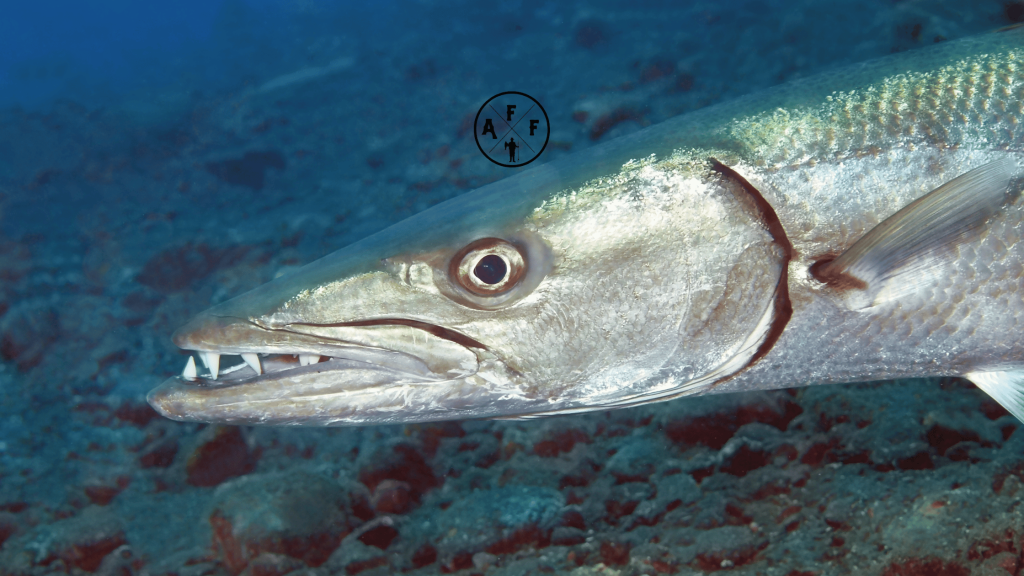
Barracuda, a predatory fish known for its impressive size and speed, has long been a subject of debate among seafood enthusiasts. While some people enjoy the taste of its firm, white, low-fat meat, others are wary of the potential risks associated with consuming it. In order to determine the answer to “is barracuda good to eat, it is essential to consider several factors, including the fish’s size, where it was caught, and proper preparation methods.
One of the main concerns when it comes to eating barracuda is the risk of ciguatera fish poisoning. This toxin is found in algae on coral reefs and can accumulate in the food chain, resulting in high concentrations in certain fish species, including the barracuda. Research has indicated that smaller barracuda, typically those under 24 inches in length, have lower levels of mercury and ciguatera toxin, making them safer for consumption.
Another important factor to consider when determining if barracuda is safe to eat is the location where it was caught. In some regions, the risk of ciguatera poisoning is higher due to the presence of the toxin in local algae populations. Proper preparation and cooking methods can reduce the risk of poisoning, and it’s always best to consult local guidelines and obtain fish from reputable sources to ensure a safe and enjoyable dining experience with barracuda.
Understanding Barracuda
Habitat and Distribution
Barracuda are predatory fish that inhabit mostly tropical waters. Found in various oceanic regions, they frequent areas around reefs and along coastal shorelines. The great barracuda, a well-known species, is commonly associated with sportfishing and recognized as an apex predator in its ecosystem.
Physical Characteristics
These fish display distinct physical traits, often characterized by a long, slender body and a sharp-toothed, pronounced jaw. In addition, their silvery-gray coloration with dark markings allows them to camouflage effectively in their environment. The great barracuda, for instance, can grow up to 6 feet in length and weigh up to 110 pounds.
Diet and Behavior
As predatory fish, barracudas primarily feed on a variety of smaller reef fish. They are known for their incredible speed, reaching up to 27 miles per hour, which enables them to prey on a diverse range of fish species. In general, barracudas are aggressive hunters and utilize ambush tactics to surprise and capture their prey. Their role as apex predators contributes to maintaining a balance within their ecosystem by controlling the population of prey species.
Barracuda Edibility
Taste and Texture
Barracuda is known for its firm, white meat that is low in fat. It offers a mild flavor, making it a suitable choice for various dishes. The texture of barracuda meat is also quite appealing, as it tends to be firm and holds up well during the cooking process.
Nutritional Value
Barracuda is an excellent source of lean protein, which is essential for maintaining and building muscles and keeping up with overall health. It also contains important nutrients such as Omega-3 fatty acids, which are known to promote heart health and improve brain function.
Culinary Uses
Barracuda is a versatile fish that can be prepared in a variety of ways. Grilling is a popular method, as it allows the fish to retain its firm texture while imparting a smoky flavor. Baking and broiling are other preferred methods, as they can showcase the natural flavors of the fish without requiring excessive amounts of added fats or oils. Barracuda can also be served as steaks or cut into smaller pieces for a range of delicious dishes, including soups, stews, and salads.
It is worth noting that while barracuda is edible, it is important to be aware of potential safety concerns. Smaller barracuda (less than 24 inches in length) are typically safer to eat, as they tend to have lower levels of mercury and ciguatera toxin, which can be harmful if ingested in large quantities. When selecting barracuda to eat, always opt for smaller fish and ensure proper handling and preparation methods to minimize any risks.
Health Concerns When Eating Barracuda
Ciguatera Poisoning
When considering the consumption of barracuda, one primary concern is the risk of ciguatera poisoning. Ciguatera is a naturally occurring toxin produced by marine microorganisms living on algae that grow on reefs. These toxins, called ciguatoxins, accumulate in the food chain, especially in predatory fish such as barracuda.
Ciguatera fish poisoning can cause a range of symptoms in those who consume the affected fish, including nausea, vomiting, diarrhea, headache, and muscle aches. In severe cases, neurological symptoms like numbness and tingling, muscle weakness, and difficulty breathing may occur. It is essential to be cautious, especially with larger barracuda, as the toxin content can be higher in these individuals.
To minimize the risk of ciguatera poisoning, adhere to the following guidelines:
- Avoid consuming large barracuda individuals
- Cook the fish thoroughly to reduce the chance of contamination
Mercury Contamination
Another health concern when consuming barracuda is mercury contamination. Mercury is a heavy metal that accumulates in the food chain and can cause severe health consequences once consumed by humans. The main source of mercury in fish is through the consumption of smaller organisms that have already absorbed mercury from their environment.
Larger and older fish, such as the barracuda, are likely to have higher mercury levels in their bodies, making them less safe for consumption. High mercury intake can lead to various health issues, such as damage to the nervous system, brain, kidneys, and liver.
To reduce the risk of mercury contamination, consider these recommendations:
- Eat smaller barracuda, as they typically have lower mercury levels
- Limit the consumption of barracuda, especially for larger individuals
Following these guidelines and taking the abovementioned health concerns into account can help ensure a more enjoyable and safer experience when consuming barracuda.
Barracuda Preparation and Consumption
Selecting a Safe Barracuda
When choosing a barracuda to eat, it’s essential to select smaller fish, ideally less than 24 inches in length. The reason for this is that larger barracuda tend to have higher levels of mercury and ciguatera toxin, which can cause foodborne illnesses. Ciguatera toxin is consumed by smaller fish grazing on algae that live on reefs, and it accumulates in larger predatory fish like barracuda, especially in areas such as the Caribbean Sea and Hawaii.
Cleaning and Filleting
Before cooking a barracuda, it’s crucial to clean and fillet the fish properly. First, remove the head and intestines from the fish. Then, use a sharp fillet knife to slice along the fish’s backbone, carefully working around the bones to remove the meat from the skeleton. Since barracuda is a saltwater fish, it’s essential to rinse the fillets well to remove any remaining debris or scales.
Cooking Methods
Barracuda can be cooked using various methods, and it’s important to cook the fish thoroughly to ensure it’s safe for consumption. Here are some cooking methods that work well:
- Grilling: Grill the barracuda fillets for a few minutes on each side until the flesh is firm and white. Adding a light seasoning or marinade can enhance the flavor.
- Pan-frying: In a hot pan with a small amount of oil, cook the barracuda fillets for a few minutes on each side until they are firm and opaque. Be sure not to overcook the fish, as this can make it dry.
- Baking: Preheat your oven to 375°F (190°C) and place the barracuda fillets in a baking dish. Bake for 10-15 minutes or until the fish flakes easily with a fork.
- Soups and stews: Barracuda can be used in various soups and stews, as its firm texture and mild flavor are suitable for these types of dishes.
Remember that when cooking barracuda, the oil content of the fish can be low, so adding some moisture through a sauce, marinade, or cooking method can help maintain a tender and flavorful result.
Frequently Asked Questions
Are Barracuda poisonous?
Barracudas themselves are not poisonous. However, they can carry ciguatera fish poisoning, a toxin that accumulates in the flesh of some fish, especially larger specimens. Ciguatera fish poisoning is caused by consuming fish contaminated with high levels of the toxin. This toxin is not destroyed by cooking, so it can still pose a risk when consuming the fish.
The risk of ciguatera poisoning is particularly higher in some regions, such as the Caribbean and the Pacific Islands. Symptoms of ciguatera poisoning can include nausea, vomiting, diarrhea, muscle aches, joint pain, and neurological issues like tingling and numbness. It is essential to be cautious when considering eating barracuda, especially larger ones, as they have a higher chance of carrying the toxin.
Can Barracuda be eaten raw?
While it may be technically possible to eat barracuda raw, it is not recommended due to the risk of ciguatera fish poisoning mentioned earlier. The toxin can still be present in raw fish and may lead to serious health issues even in small amounts.
Additionally, like other seafood, consuming raw barracuda may also expose you to various pathogens and parasites. It is always advisable to cook barracuda properly to reduce the risks associated with raw fish consumption.
In conclusion, while barracuda can be an edible fish with firm, white, and low-fat meat, it is crucial to be aware of the potential health risks involved and take necessary precautions. Proper preparation and cooking methods can help reduce the dangers of poisoning and other potential issues.










